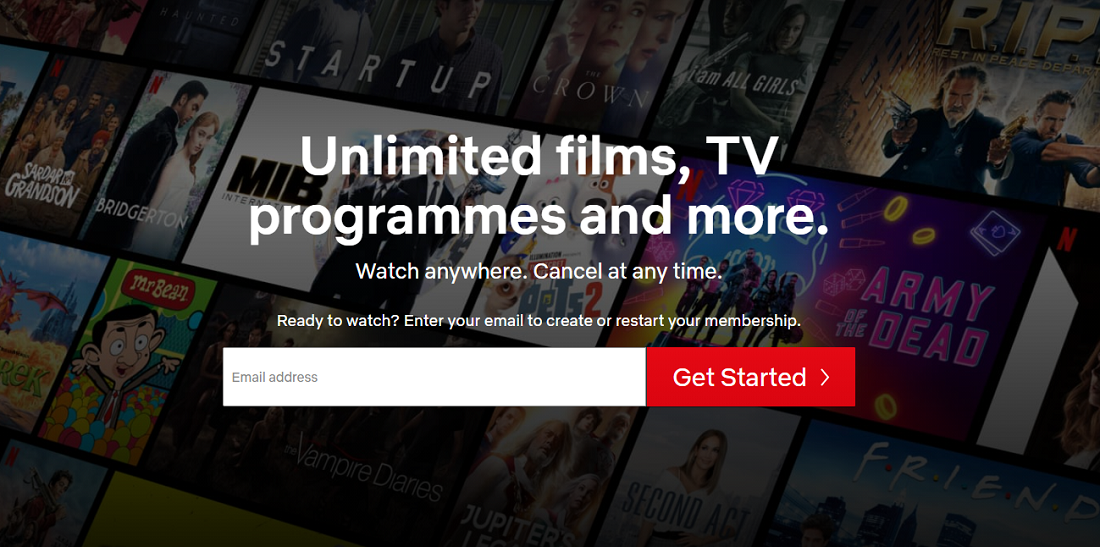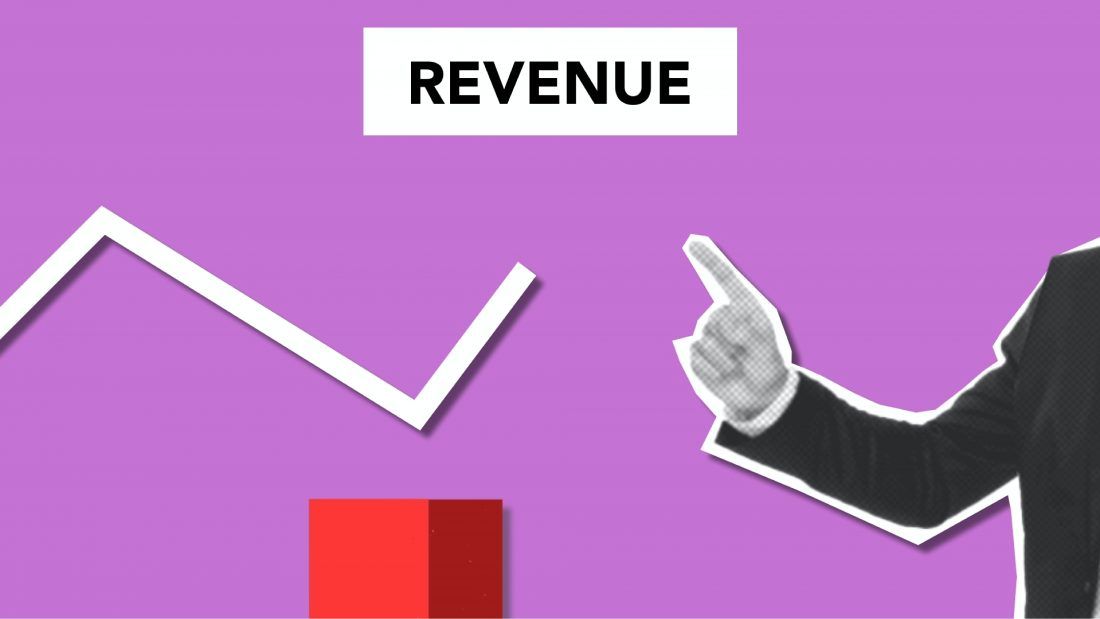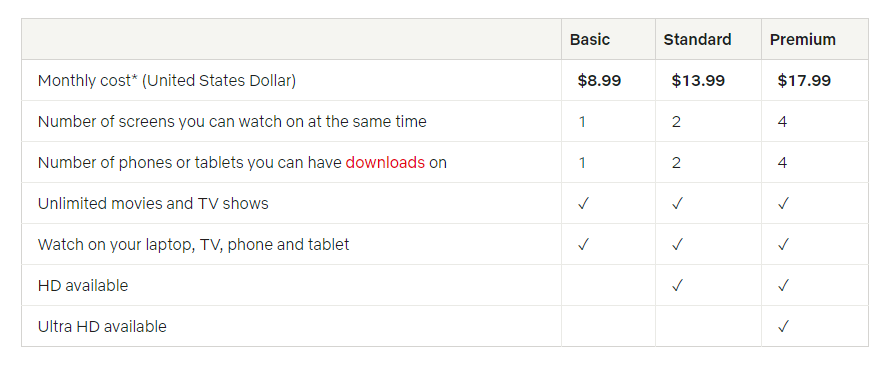Netflix's terms of service state you're only allowed to share your password with people that are a part of your household. Anyone else is not entitled to it; if you give your password to them, you're violating the rules.
But so many users do violate these terms. Netflix knows it, and has done for a while, but has yet to come up with a reasonable solution to the password sharing problem. Or perhaps it doesn't really mind?
Let's take a closer look at the issue of password sharing and what Netflix can do to combat it.
Netflix Password Sharing Isn't a New Issue
The issue of password sharing has been on Netflix's mind for quite some time.
In 2016, Netflix co-founder and chief executive Reed Hastings appeared content with accepting the losses from password sharing, saying that "password sharing is something you have to learn to live with."
In 2019, chief product officer Greg Peters stated that Netflix was exploring the concept of password sharing, but had nothing to announce.
And, in April 2021, Hastings claimed that Netflix is still trying to find a solution to the issue, but that it won't implement a policy that might feel like the company is pulling the rug from under its users. Netflix promised that before anything gets executed, it has to make sense for users.
What's the Benefit of Netflix Password Sharing?

For many people, the hindrance stopping them from subscribing to Netflix themselves is the cost. If you can't afford to pay for a monthly subscription, sharing it is an appealing alternative.
Most people who share passwords tend to be friends, partners, or family members who live apart. Even Netflix understands that the people guilty of password sharing aren't doing it maliciously, but rather out of necessity or as a sign of affection.
If you're a broke college student who lives on campus, and your sibling offers to share their Netflix account with you, would you say no?
Granted, there are certain risks to sharing your Netflix account, but the positives usually outweigh the negatives.
For Netflix, It's All About the Bottom Line

2020 brought Netflix almost 37 million new subscribers, adding to its already impressive number of over 200 million subscribers worldwide. Compared to those numbers, which undoubtedly got bumped up due to the COVID-19 pandemic, Netflix's growth has slowed in 2021.
But back to 2020 and its 200 million subscribers. That’s already a staggering number in itself, but try to imagine what it would turn into if people stopped sharing their passwords? Sure, sometimes only people who live together share the same password. But that's not always the case.
To some extent, though, Netflix did this to itself when it made it possible for several people to share the same account but still keep separate profiles.
According to estimations by analysts, Netflix loses on $6 billion annual revenue from allowing illegitimate password sharing to continue. When you consider the loss, it's no wonder it's desperate to come up with an adequate solution to the problem.
What Could Netflix Do to Stop Password Sharing?
Netflix has been trying to employ the carrot strategy over the stick. Instead of implementing a strict policy that would penalize password sharing, the company is choosing to go in a different direction.

First, Netflix is trying to provide more enticing deals and packages. The company hopes that it can get people to stop using someone else's password and sign up for their own subscription, thanks to the range of affordable packages.
Second, Netflix is warning people about password sharing by showing a reminder message when they log in to their account.
A Twitter user shared an image of the text that showed up on their screen after they signed in to Netflix. It states: "If you don't live with the owner of this account, you need your own account to keep watching."
O no. Netflix doing the purge?!? pic.twitter.com/XXlHtfgfsy
— sally, that girl (@DOP3Sweet) March 9, 2021
It then asks if this is your account and requests to send you a verification code to ensure that it is yours. You have three available options: an email code, an SMS code, or to "verify later." It's not entirely clear when "later" is, but Netflix has confirmed that this is a new policy it's testing out.
Supposedly, the test ensures that people sharing passwords do so legitimately. However, it's not quite full-proof. After all, you can always get the verification code from the person with whom you're sharing a password, even if they're a million miles away from you.
If you've severed ties with that person, but they still graciously allow you to use their account, it's a bit trickier. At that point, you might have to get your own account or try to find someone else to share it with.
What Would Happen If Netflix Did Change Its Password Policies?
What if Netflix did change its policies and became much stricter when it came to password sharing? Would that be a good thing or quite the opposite?
Obviously, Netflix would reap the rewards of gaining more subscribers, which would be a huge positive for them. But it's unlikely that regular users will gain any positives.
What changes for them is that they now have to pay for Netflix. If they shared the cost, they'd now have to pay more; if someone else took care of it, they'd have to pay for the whole thing themselves.
There would be no additional benefit to the user, since you can easily create multiple Netflix profiles under the same account.
It appears that apart from the company's financial gains, no other positives can follow a password-sharing crackdown.
Should Netflix Even Try to Stop Password Sharing?
Netflix, HBO Go, Amazon Prime, Disney+... these are all streaming platforms that permit its users to have multiple profiles under their account. All these companies face the same issue.
How do you know which users share their passwords legitimately and which ones don't? Is there a fool-proof way to tell the difference? So far, the answer is no.
The question is, should Netflix even try to stop password sharing? It's likely that many of the people benefitting from password sharing wouldn't pay for their own account, so Netflix isn't actually making a loss—and, after experiencing everything Netflix has to offer for free, these users might decide to subscribe down the line.
Netflix reported $25 billion in revenue in 2020. With figures like that, password sharing seems like a minor issue.
![How to Find IMSI Number on iPhone [Helps with iOS Unlock][Updated] data:post.title](https://blogger.googleusercontent.com/img/b/R29vZ2xl/AVvXsEjLjHwhnfUXNJTuiylqmlurhLRVAEVi803j6xcnvN8EZwF5_XUynz1y0Ko-vwpx6O3nT5hogTELahedGzgQpXM5Y99fcBliinyBu8ACw8_DVV3FpPLkIqR0u7v_HM39rAkpV5MyJiG1h5s/s72-c/find+imsi+iphone.jpg)